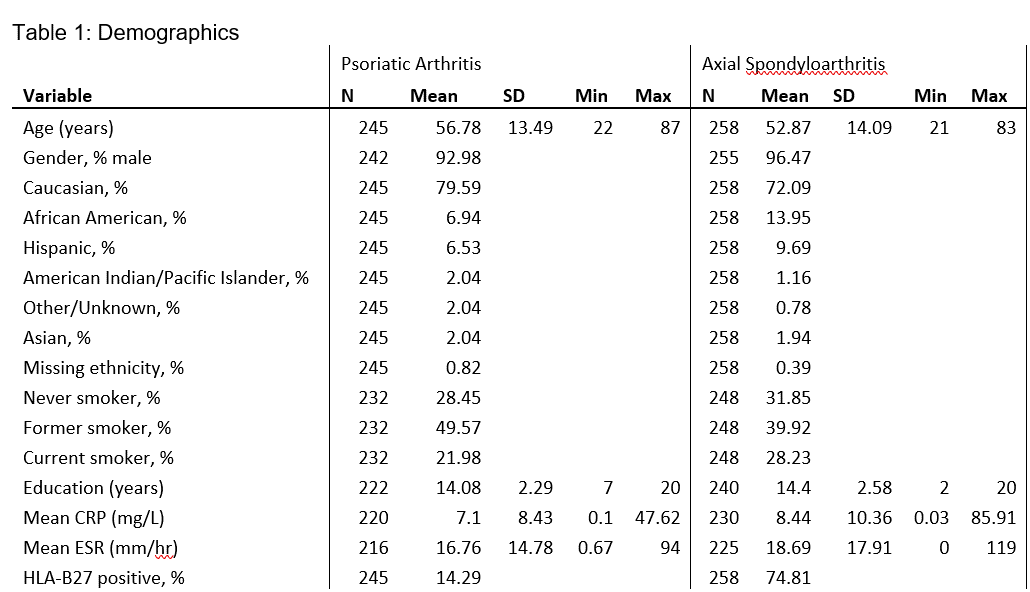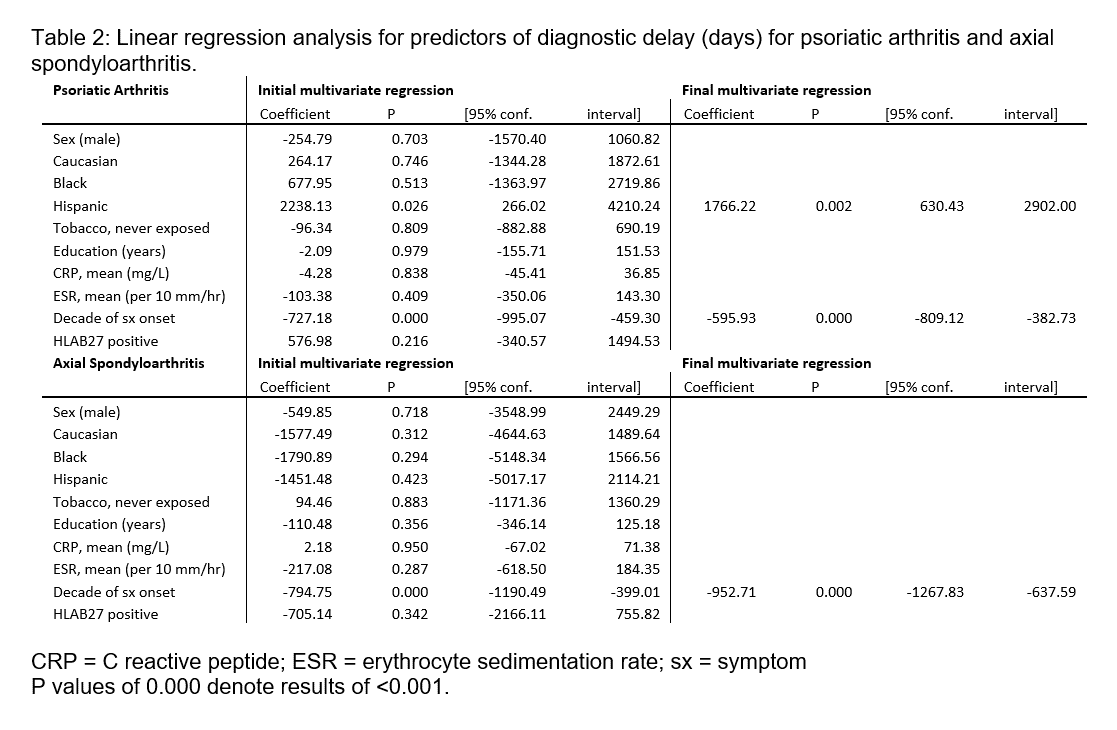Session Information
Date: Monday, November 18, 2024
Title: SpA Including PsA – Diagnosis, Manifestations, & Outcomes Poster III
Session Type: Poster Session C
Session Time: 10:30AM-12:30PM
Background/Purpose: Studies have suggested a delay between symptom onset and diagnosis for Psoriatic Arthritis (PsA) and axial spondyloarthritis (axSpA). Factors that influence this delay have received limited attention. We examined changes in this delay over the past five decades and clinical predictors of the time to diagnosis for PsA and axSpA, with special attention to possible associations with race and ethnicity.
Methods: Patients with PsA (n=245) and axSpA (n=258) enrolled in the U.S. Department of Veterans Affairs Program to Understand the Long-term Outcomes in SpondyloARthritis (PULSAR) registry self-reported the date of symptom onset for their disease, as well as their race and ethnicity. Race and ethnicity were modeled as independent dichotomous variables to allow for all possible combinations. The date of diagnosis was recorded by the rheumatologist caring for the patient. We performed a multivariate linear regression of diagnostic delay for available clinical variables, including sex, race, ethnicity, smoking status, education level, ESR and CRP concentrations, HLAB27 positivity, and decade of symptom onset. Models were developed using backward stepwise elimination, and only variables with p < 0.05 were retained. Separate models were constructed for PsA and axSpA.
Results: For both PsA and axSpA, the delay in diagnosis declined by an average of two years over each decade. No association was identified for any race or ethnicity, except for Hispanics, who experienced an approximately 4.8-year greater diagnostic delay (1766 days) than non-Hispanics. No other clinical variables examined demonstrated an association with diagnostic delay.
Conclusion: There has been progress in the time required to diagnose individuals with PsA and axSpA over the past few decades. Individuals self-identifying as Hispanic experienced a longer time to establish a diagnosis of PsA than non-Hispanics—a phenomenon not observed with axSpA. The reasons for this delay should be further explored.
To cite this abstract in AMA style:
Loftis C, Caplan L, Padilla Zepeda J, Mukooba N, Caplan M, Fang M, Stolyar L, Walsh J, Kerr G, Raychaudhuri S, Reimold A, Wong M. Race and Ethnicity as Predictors of Diagnostic Delay in Psoriatic Arthritis and Axial Spondyloarthritis [abstract]. Arthritis Rheumatol. 2024; 76 (suppl 9). https://acrabstracts.org/abstract/race-and-ethnicity-as-predictors-of-diagnostic-delay-in-psoriatic-arthritis-and-axial-spondyloarthritis/. Accessed .« Back to ACR Convergence 2024
ACR Meeting Abstracts - https://acrabstracts.org/abstract/race-and-ethnicity-as-predictors-of-diagnostic-delay-in-psoriatic-arthritis-and-axial-spondyloarthritis/


